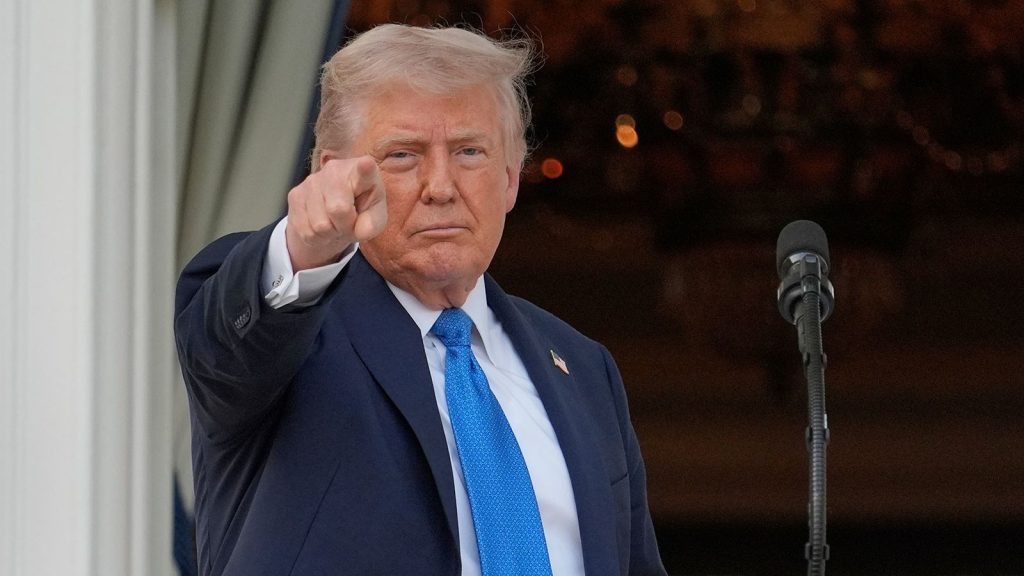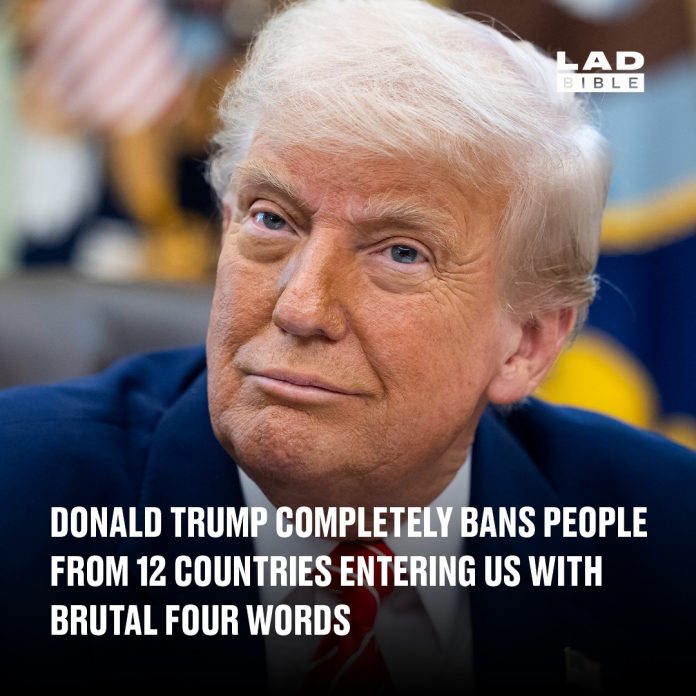On June 4, 2025, President Donald Trump signed a proclamation reinstating a travel ban that bars citizens from 12 countries from entering the United States. This move echoes the controversial “Muslim ban” implemented during his first term and is justified by the administration as a measure to protect national security.
Details of the Ban
Effective June 9, the travel ban prohibits entry into the U.S. for nationals from the following 12 countries: Afghanistan, Myanmar, Chad, Republic of the Congo, Equatorial Guinea, Eritrea, Haiti, Iran, Libya, Somalia, Sudan, and Yemen. In addition to the full bans, seven countries face partial restrictions: Burundi, Cuba, Laos, Sierra Leone, Togo, Turkmenistan, and Venezuela. These partial restrictions may include limitations on certain visa categories and increased scrutiny during the application process.

Rationale Behind the Ban
President Trump cited national security concerns as the primary reason for reinstating the travel ban. In a video message posted on Truth Social, he referenced a recent attack at a pro-Israel rally in Colorado, emphasizing the dangers posed by inadequately vetted foreign nationals. He stated, “We cannot have open migration from any country where we cannot safely and reliably vet and screen those who seek to enter the United States.”
Exemptions and Special Considerations
The proclamation includes specific exemptions to the travel ban. Individuals from the affected countries may still be eligible to enter the U.S. if they fall into certain categories, such as:
- Athletes participating in major sporting events like the FIFA World Cup or the Olympics
- Holders of immigrant visas for ethnic and religious minorities
- Individuals with dual citizenship, provided they are traveling on a passport from a non-banned country
- These exemptions aim to balance national security interests with humanitarian considerations and international commitments.
Domestic and International Reactions
The reinstatement of the travel ban has elicited mixed reactions both domestically and internationally. Supporters argue that the measure is necessary to safeguard national security and prevent potential terrorist threats. Critics, however, contend that the ban disproportionately targets Muslim-majority and African countries, raising concerns about discrimination and the potential for diplomatic fallout. Legal experts anticipate challenges to the ban, drawing parallels to the legal battles that ensued following the 2017 travel ban. The Supreme Court ultimately upheld the earlier version of the ban in a 5–4 decision, citing the president’s authority to regulate immigration in the interest of national security.
Implications for U.S. Immigration Policy
The reinstated travel ban signals a continuation of the Trump administration’s stringent approach to immigration. It underscores a broader policy shift towards enhanced vetting procedures and a focus on national security concerns over humanitarian considerations. The administration has indicated that these measures are part of a comprehensive strategy to reform the U.S. immigration system and address perceived vulnerabilities.

Conclusion
President Trump’s decision to reinstate the travel ban reflects ongoing debates over immigration policy and national security. As the ban takes effect, its impact on international relations, affected individuals, and the broader discourse on immigration will continue to unfold. The administration maintains that the measure is a necessary step to protect American citizens, while opponents argue that it undermines the nation’s commitment to inclusivity and equal treatment under the law.

















